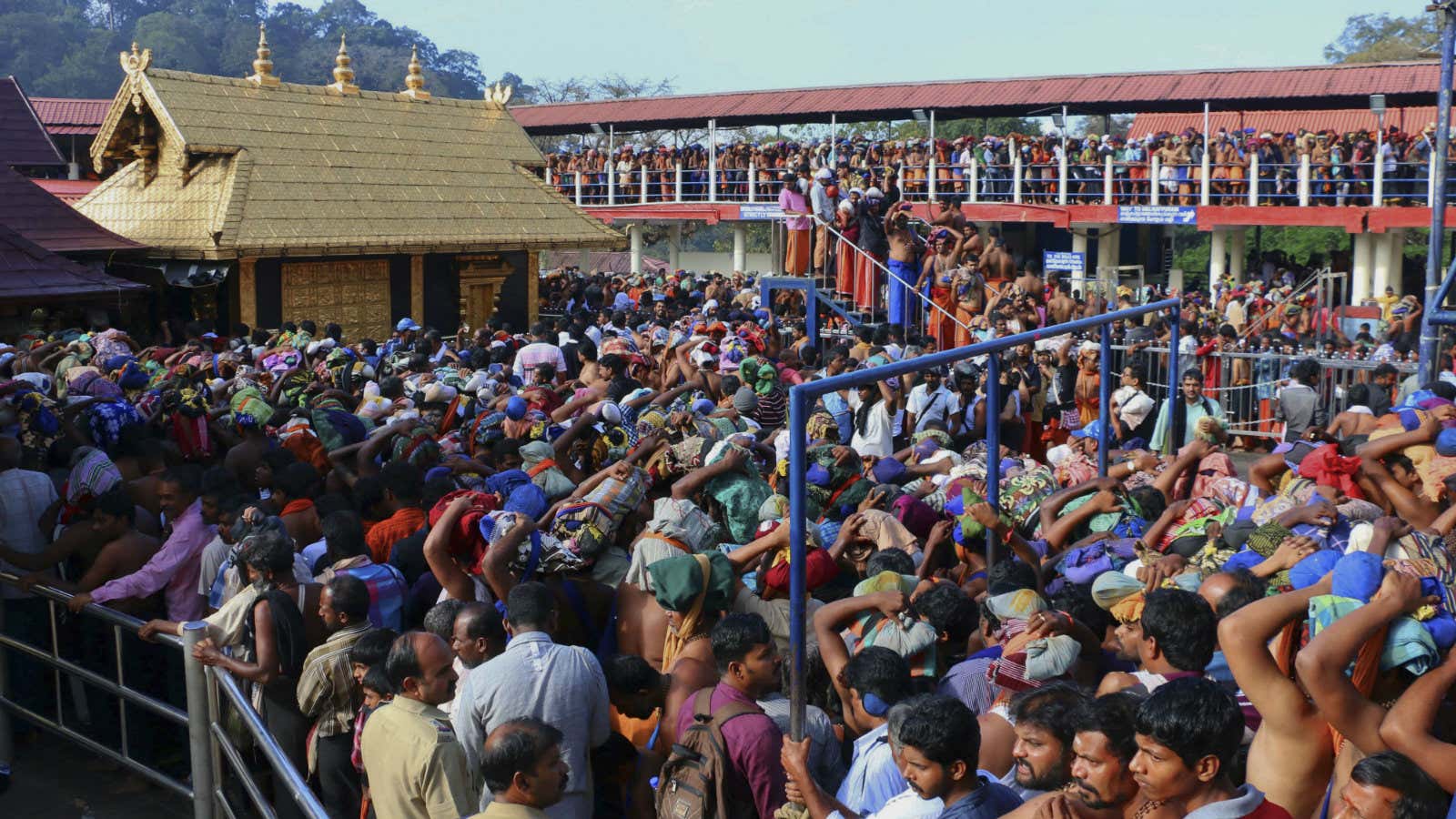India’s supreme court has scrapped a centuries-old practice that prevented women of menstruating age from entering a revered temple in the southern state of Kerala.
In a 4:1 majority, a five-judge bench consisting of chief justice Dipak Misra and justices Rohinton Nariman, AM Khanwilkar, DY Chandrachud, and Indu Malhotra said excluding women of menstruating age from the Sabarimala temple of Hindu god Ayyappa goes against their right to practice religion, as enshrined in article 25 of the Indian constitution.
Justice Malhotra, the only woman on the bench, dissented with the majority ruling, arguing, “What constitutes essential religious practice is for the religious community to decide, not for the court.” But in a judgment co-written with justice Khanwilkar, chief justice Misra said the dualistic approach degraded the status of women. He said women are not lesser or inferior to men and the patriarchy of religion cannot be permitted to trump over faith.
The verdict comes over a decade after the Indian Young Lawyers Association filed a public interest litigation (PIL) against rule 3(b) of the Kerala Hindu Places of Public Worship (Authorisation of Entry) Rules, 1965. This rule prohibited women aged between 10 and 50 from entering the temple located in the Western Ghats. One of the most popular pilgrimage sites in the country, it reportedly drew 35 million visitors in 2016 and earned a revenue of Rs243.69 crore for the 2016-17 festival season.
Its website states that the temple is open to all, “irrespective of caste, creed or religion.” But it has for long barred the entry of girls and women, based on the belief that the presiding deity is celibate. This stance has been criticised heavily as going against the constitutional rights to equality and the practice of religion, besides promoting discrimination on the basis of gender.
After the PIL was filed in 2006, the apex court referred the case to a three-judge bench in 2008, but it would take seven years before it came up for hearing in January 2016. A year later, it was referred to a constitution bench, which was tasked with evaluating, among other things, whether the practice of excluding women violated articles 14, 15, and 17 of the Indian constitution, which pertain to the right of equality, the prohibition of discrimination, and untouchability, respectively.
The Travancore Devaswom Board, which manages the temple, had argued that the centuries-old practice was based on a “well-founded bonafide belief.” It said the practice was justified because it would be physiologically impossible for women to perform the 41-day penance (vritham) of fasting and celibacy. However, while this period of penance is a requirement to enter the temple, it is often not followed fully by even the male devotees.
In an eight-day hearing this August, the bench led by chief justice Misra said the practice was unreasonable and mired in patriarchy.
“Physiological features cannot be a ground for denial of right. To suggest that women cannot keep vritham is to stigmatise them,” justice Chandrachud said in his concurring judgment on Sept. 28.
